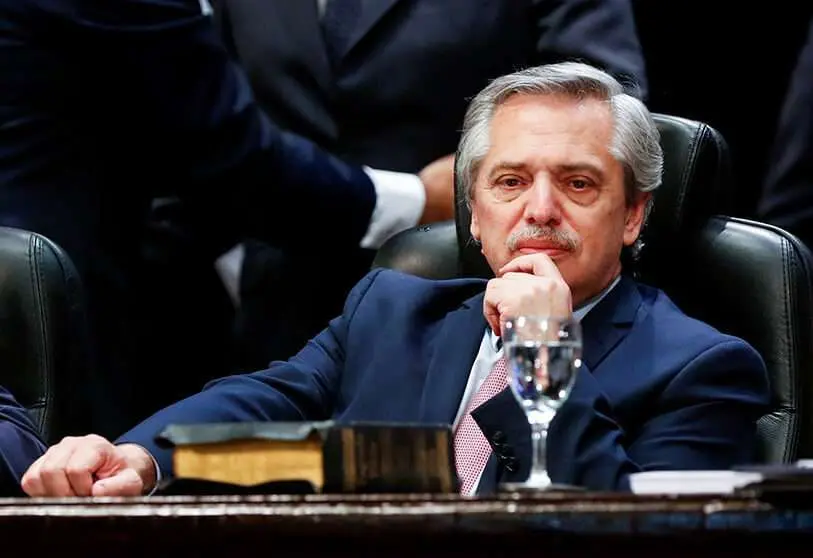Argentina joins the Chinese Silk Road

Argentine President Alberto Fernández failed to recognise in Moscow, or perhaps he underlined it to make it clear, that Argentina's great aspiration is to free itself from dependence on the International Monetary Fund and the United States. The US is the IMF's largest partner, to which Buenos Aires owes 44 billion dollars, a debt that seems more and more unpayable with each passing day.
The Russian capital was the first part of Fernández's tour, and the president asked his colleague Vladimir Putin to consider Argentina as Russia's best gateway to the Latin American continent. Fernández refrained from speaking openly about the Russian-Ukrainian conflict, but the Kremlin has taken good note of Argentina's willingness to lend a hand if necessary, in the event that the standoff with NATO escalates and the country needs support for a global rebalancing of influences.
But where Fernández has scored his greatest success on this tour, as has President Xi Jinping on the other hand, has been in China. The Chinese leader gave him practically the same treatment as Putin, a long interview and private lunch, and if he guaranteed the Russian leader the purchase of 10 billion cubic metres of gas per year, he has won the Argentinean over to the cause of his One Belt One Road planetary project, more popularly known as the New Silk Road.
In total, projects and investments worth $23.7 billion, including $9.7 billion for a broad cooperation plan in energy, water supply, sewage, transport and housing construction. The remaining 14 billion would be included in the framework of the so-called Strategic Dialogue for Economic Cooperation and Coordination, which, with a portfolio that already contains a dozen projects, would invest mainly in development projects in the provinces of Buenos Aires, Río Negro and Catamarca.
This is the culmination of a Sino-Argentine idyll, intensified after the Southern Cone country was one of the worst hit by the coronavirus pandemic. Through donations and sales, China supplied the country with essential medical and hospital supplies, including 30 million Sinopharm vaccines. At the same time, the two countries have begun to develop other projects on the sidelines, such as the installation of a space tracking base in the province of Neuquén and a nuclear power plant to increase electricity supply to Buenos Aires, up to 85% of the $8 billion cost of which would be provided by Beijing.
Obviously, the success of Alberto Fernández's tour of Russia and China, whose leaders have already openly identified the United States as their great adversary to beat, has not aroused any sympathy in Washington, whether in the US Secretary of State, the White House or the IMF headquarters, institutions that are watching a new map of zones or spheres of influence being drawn up, the declared objective of Moscow and Beijing, which have been pursuing a policy of fait accompli for some time now. Almost the entire world is at stake, and Latin America is no exception.
In the entourage accompanying Fernández, the phrase apparently hurled at Xi Jinping by way of mutual praise was tossed around: 'If you were Argentine, you would be a Peronist'. Of course, if measured by the practical results of prosperity and efficiency (which is the norm within the CCP, albeit at the cost of sacrificing human rights), the two countries could not present more divergent lines. One country suffocated by a constant devaluation of its currency versus another that has in practice become the banker who lends to all the others.
And, to return to the thorny issue of the debt, no matter how much debt restructuring Argentina's negotiator Jorge Argüello manages to achieve, there is little confidence that he will be able to pay it back. China, for its part, like a relentless roller, has lent and lends a lot of money, and its policy disdains cancellation, preferring to convert what it is owed into investment, which also translates, to a large extent in the United States, into the progressive acquisition of a multitude of indebted companies or entities. One way of trying to lead the world: by buying it.

